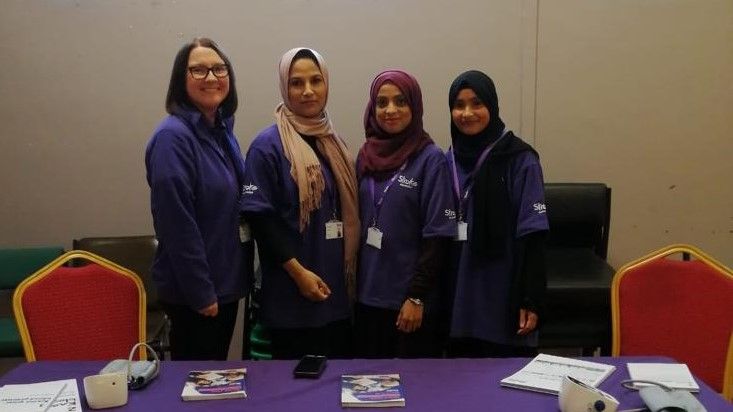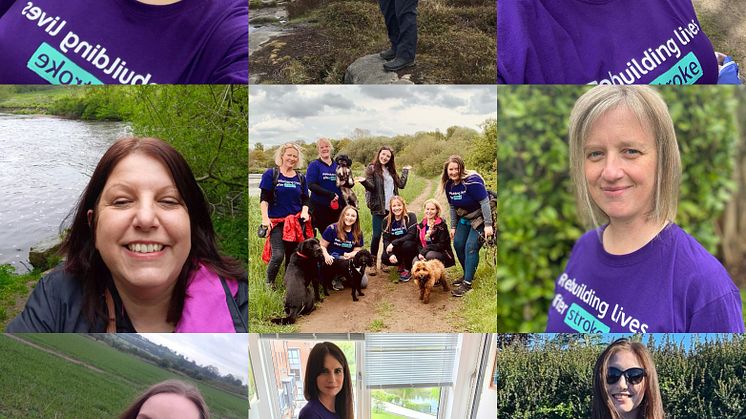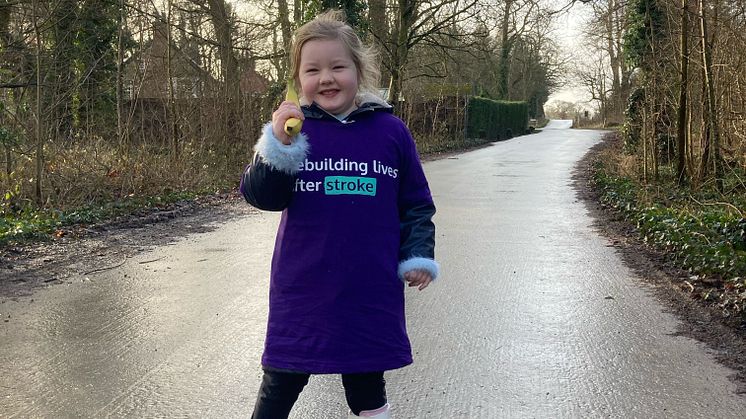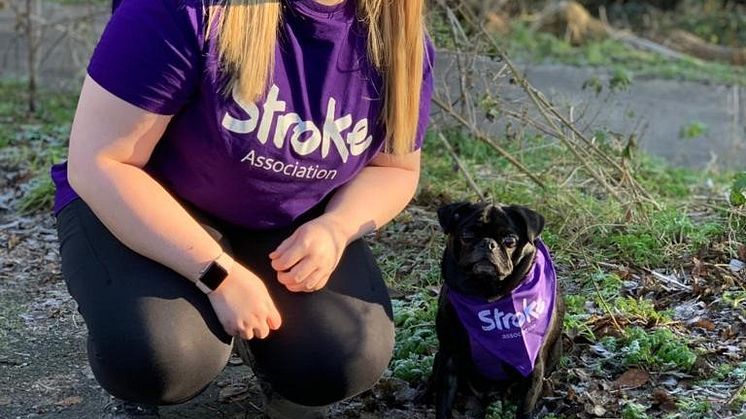
Press release -
Stroke Association and Sunderland Bangladesh International Centre team up to help prevent stroke
The Stroke Association and Sunderland Bangladesh International Centre have joined forces, to help prevent stroke and raise awareness of the condition within the local Bangladeshi community.
The partnership was part of the Stroke Association’s Hand in Hand programme, a five year project funded by The National Community Fund, to help reduce health inequalities in hardly reached areas. There are more than 5,000 people in the Bangladeshi community living in Sunderland.
Danielle Cottrell, Volunteering and Community Officer at the charity, trained six members of the centre as Stroke Ambassadors so that they could raise awareness of stroke and the risk factors. All volunteers had been personally affected by stroke in their own families.
The training enabled members to raise awareness of stroke and risk factors in the Sunderland Bangladeshi community, as well as understanding how to take blood pressure readings, with high blood pressure being one of the main risk factors of stroke.

Ayesha Begum is one of the centre members who has completed the training. She said: “Being a Stroke Ambassador has given me the opportunity to give advice and guidance to the local community on stroke. Sometimes people are unaware of the facilities and support available to them and so tend to access them less. It has also given me a huge understanding about stroke – what happens in the brain, what signs to look out for and what actions to take.
“I’m proud of myself as I have learnt to take blood pressure readings, understand what it means and explain the results to someone and talk to them about lifestyle changes can help to prevent stroke. As my family member has had a stroke it has now given me the knowledge to understand the impact it has had on him and what it will have on others."
Rehena Sultana also completed the training, adding: “The training was extremely beneficial for me personally and the Bangladeshi community. Knowing the symptoms of stroke has made me feel like I can save a life.
“The blood pressure training helped me during the pandemic as I was unable to visit the GP to have it checked. I ended up monitoring my own, and my father’s blood pressure. I was suffering from hypertension due to some medication I was taking but due to the regular monitoring, I was able to identify it and was told to stop taking the medication by my GP.”

In addition to training centre volunteers to help raise awareness, the Stroke Association and the Sunderland Bangladesh International Centre have also teamed up to translate one of the charity’s main awareness films, ‘What is a Stroke?’ into Sylheti, voiced by centre volunteer Halima Sadia. The film will be shared on social media and at local events to further help people to understand more about the condition.
Danielle Cottrell, Volunteering and Community Officer at the Stroke Association said: “A stroke can happen to anyone at any time and it turns lives upside down. But if you are of Bangladeshi origin you may have a higher risk of stroke than other people in the UK. If you are South Asian you are more likely to develop high blood pressure, diabetes or high cholesterol, which are all risk factors for stroke.
“The project has enabled us to establish a long term partnership with the centre, and enable people to have a greater knowledge of stroke, spot signs and symptoms as well as access stroke prevention advice and information. We’re really excited about the work we’ve done so far and look forward to continued and regular awareness sessions within the community.”
Nahida Aktar, Health and Wellbeing Officer at Sunderland Bangladesh International Centre, said: “This partnership with the Stroke Association has helped us to provide vital information to local people in relation to stroke. Training people to become Stroke Ambassadors has enabled them to become someone within the community who others can communicate with and get relevant information to help them and their families. This great partnership working showcases that if we really want to achieve results and to engage with harder to reach groups, then more services need to be proactive and take steps such as this to combat health inequalities.“
For more information about stroke, ring the Stroke Helpline on 0303 30 33 100 or visit www.stroke.org.uk.
Topics
Categories
- Stroke strikes every five minutes in the UK and it changes lives in an instant.
- The Stroke Association is a charity working across the UK to support people to rebuild their lives after stroke. We believe that everyone deserves to live the best life they can after stroke. From local support services and groups, to online information and support, anyone affected by stroke can visit stroke.org.uk or call our dedicated Stroke Helpline on 0303 3033 100 to find out about support available locally.
- Our specialist support, research and campaigning are only possible with the courage and determination of the stroke community and the generosity of our supporters. With more donations and support, we can help rebuild even more lives.
- You can follow us on Twitter, Facebook and Instagram.




